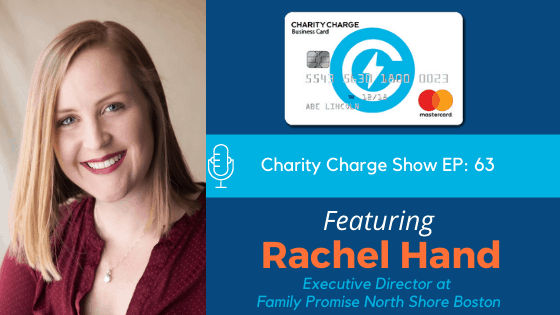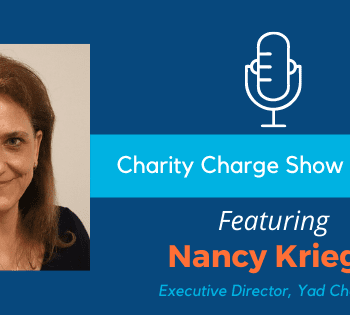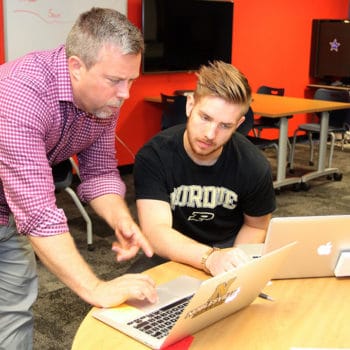In episode 63 of The Charity Charge Show, Stephen speaks with Rachel Hand, Executive Director at Family Promise North Shore Boston, one of more than 200 affiliates of Family Promise with the mission of housing families and helping them get back on their feet.
Rachel Hand joined Family Promise North Shore Boston as the Executive Director in January of 2019. She spent the previous decade working in the field of homeless services. Her prior jobs include on-the-ground direct service with individuals experiencing homelessness, intake coordination and case management for recently housed individuals, and working to assess and place individuals and families into permanent supportive housing for the City of Cambridge.
Currently, she lives in Beverly, MA, with her husband and two cats. She is grateful to be working in the North Shore community alongside her neighbors as they fight together to advocate for affordable housing and better wages while ultimately trying to end homelessness.
In this interview, Rachel and Stephen discuss some difficult topics, like taking over a struggling nonprofit, how donors can sometimes be working directly against the nonprofit’s cause, and what actions we as individuals can take to support the work of nonprofits outside of just donating our time and money.
Here is a snippet of Rachel’s thoughts on the “nonprofit industrial complex”:
I think what you’re hinting at is the nonprofit industrial complex. And what that is, in a nutshell, is this idea that nonprofits fill a gap, they serve a need, and they were created to do that strategically, right? Because it’s almost like offloading these responsibilities for these [government] agencies. What that does is it takes the responsibility off of the wealthier class the people who are the donor class. Because they can write off things on their taxes, they can send money to a nonprofit and think, “I’ve done my job.” But they’re not realizing how they’re almost countering that donation sometimes by other things that they’re doing in their day to day life. And I don’t know that anyone’s doing these things intentionally. The other thing is a lot of corporate people in their day-to-day, they’re not giving back, so they choose nonprofits as their mode of giving back. When you’re donating a couple thousand dollars a year to a nonprofit, that doesn’t change [the problem of affordable housing] if you’re not paying your employees a living wage.
One thing to keep in mind, too, is that there’s a power dynamic right between nonprofits and the for-profit community, or for-profit companies and nonprofits and high net worth donors. I risk losing a donor every time I have a conversation like this. I could offend someone that is consistently donating, and I need their money. There are days where I feel so conflicted, because I’m like taking money to continue this service, because [the donors] know it’s important. And I know we do great work. But I’m taking money from people who are perpetuating the problem, whether or not they realize it, whether or not it’s intentional. So I just try to be as honest and as educational as possible in when I’m meeting with donors.
Interested in listening to the full episode and hearing more from other nonprofits? Check out more episodes here Charity Charge Show





